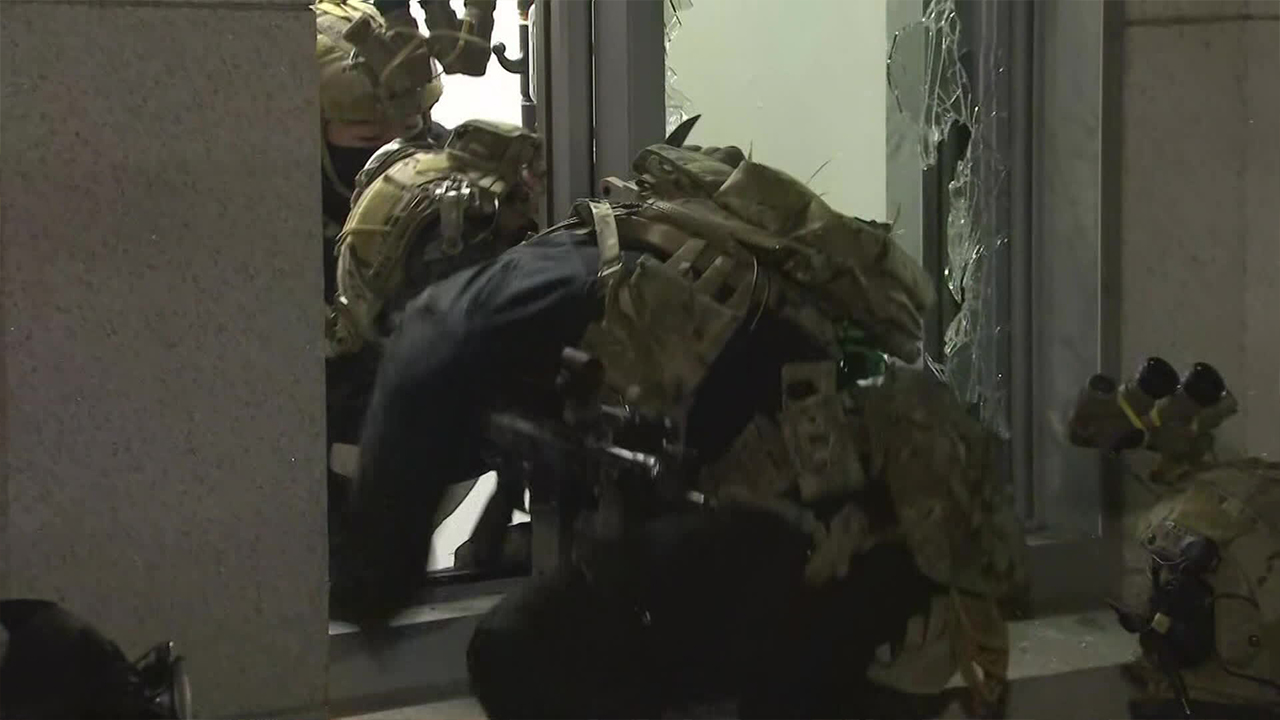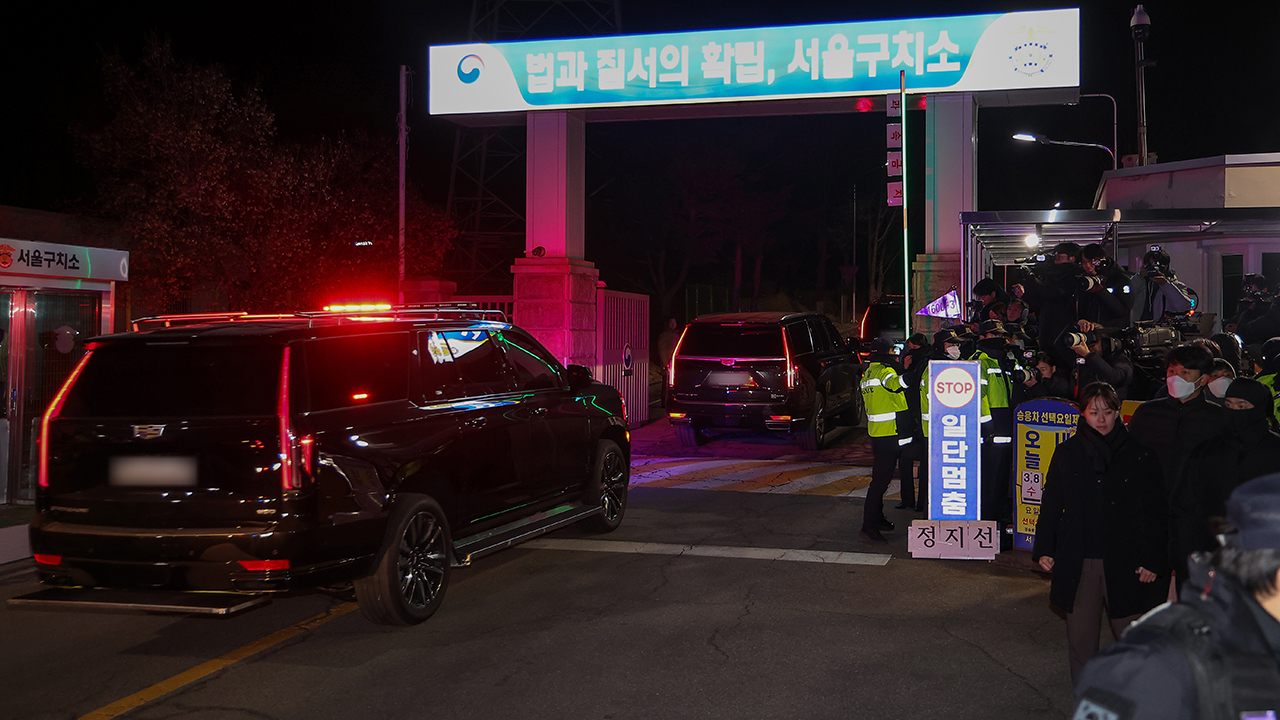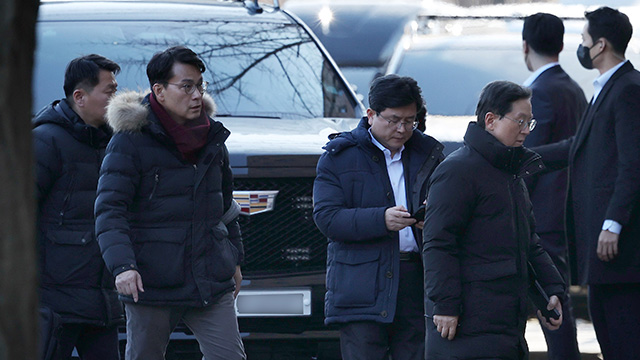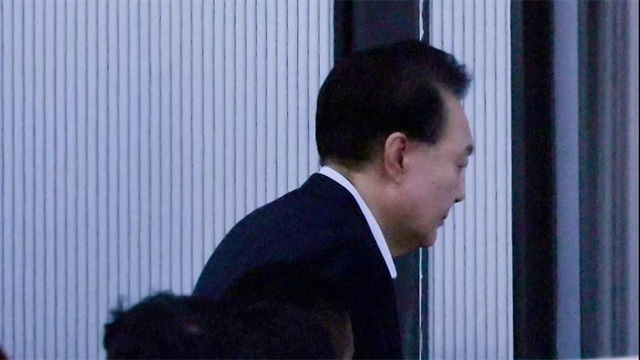[Anchor]
In the meantime, the National Archives has prohibited the destruction of records related to the martial law situation.
This decision comes 43 days after the declaration of emergency martial law, leading to criticism of a delayed response.
Reporter Lee Soo-min has the story.
[Report]
A week after the declaration of emergency martial law, significant statements regarding the list of arrests during the martial law period emerge.
[Kim Dae-woo/Former commander of the Counterintelligence Command/Dec. 10/Defense Committee of the National Assembly: "(Former Commander Yeo In-hyung) said, 'The minister has directly read out the (arrest) list,' and then asked me to write it down, so I wrote down that list...."]
At that time, Counterintelligence Commander Yeo In-hyung instructed the destruction of the list, but it was revealed during the special investigation by the prosecution that his aides opposed it.
[Cho Kuk/Former Leader of the Rebuilding Korea Party & Kim Dae-woo/Former commander of the Counterintelligence Command : "(Where is the notebook or memo with the written list?) Yesterday, a search was conducted at the Counterintelligence Command, and during that time, the investigation team submitted a list of 14 names...."]
During the martial law period when Special Forces troops were mobilized to the National Assembly, the Joint Chiefs of Staff disseminated proclamations to the Army Headquarters and others.
It has been confirmed that a copy of this proclamation was also destroyed shortly after the martial law was lifted.
Amid ongoing concerns about evidence destruction, the Corruption Investigation Office for High-ranking Officials requested a ban on the destruction of records related to the martial law on Dec. 10.
The National Archives announced today (1.15) that it will prohibit the destruction of records.
Twenty institutions, including the Presidential Office, the Ministry of National Defense, the Army, Navy, and Air Force Headquarters and military branches, and the National Police Agency, are subject to this ban.
There are criticisms that this response comes belatedly, more than 40 days after the martial law situation.
[Cho Min-ji/Director of the Center for Freedom of Information and Transparent Society: "We are in a situation where we cannot confirm how many records have disappeared and in what manner. A comprehensive investigation into the related records is...."]
The National Archives clarified that this is the first time such a notification has been issued to constitutional institutions like the National Election Commission and explained that the review process took longer than expected.
The relevant institutions, including the Ministry of National Defense and the National Police Agency, will not be able to destroy records related to the emergency martial law for the next five years.
This is KBS News, Lee Soo-min.
In the meantime, the National Archives has prohibited the destruction of records related to the martial law situation.
This decision comes 43 days after the declaration of emergency martial law, leading to criticism of a delayed response.
Reporter Lee Soo-min has the story.
[Report]
A week after the declaration of emergency martial law, significant statements regarding the list of arrests during the martial law period emerge.
[Kim Dae-woo/Former commander of the Counterintelligence Command/Dec. 10/Defense Committee of the National Assembly: "(Former Commander Yeo In-hyung) said, 'The minister has directly read out the (arrest) list,' and then asked me to write it down, so I wrote down that list...."]
At that time, Counterintelligence Commander Yeo In-hyung instructed the destruction of the list, but it was revealed during the special investigation by the prosecution that his aides opposed it.
[Cho Kuk/Former Leader of the Rebuilding Korea Party & Kim Dae-woo/Former commander of the Counterintelligence Command : "(Where is the notebook or memo with the written list?) Yesterday, a search was conducted at the Counterintelligence Command, and during that time, the investigation team submitted a list of 14 names...."]
During the martial law period when Special Forces troops were mobilized to the National Assembly, the Joint Chiefs of Staff disseminated proclamations to the Army Headquarters and others.
It has been confirmed that a copy of this proclamation was also destroyed shortly after the martial law was lifted.
Amid ongoing concerns about evidence destruction, the Corruption Investigation Office for High-ranking Officials requested a ban on the destruction of records related to the martial law on Dec. 10.
The National Archives announced today (1.15) that it will prohibit the destruction of records.
Twenty institutions, including the Presidential Office, the Ministry of National Defense, the Army, Navy, and Air Force Headquarters and military branches, and the National Police Agency, are subject to this ban.
There are criticisms that this response comes belatedly, more than 40 days after the martial law situation.
[Cho Min-ji/Director of the Center for Freedom of Information and Transparent Society: "We are in a situation where we cannot confirm how many records have disappeared and in what manner. A comprehensive investigation into the related records is...."]
The National Archives clarified that this is the first time such a notification has been issued to constitutional institutions like the National Election Commission and explained that the review process took longer than expected.
The relevant institutions, including the Ministry of National Defense and the National Police Agency, will not be able to destroy records related to the emergency martial law for the next five years.
This is KBS News, Lee Soo-min.
■ 제보하기
▷ 카카오톡 : 'KBS제보' 검색, 채널 추가
▷ 전화 : 02-781-1234, 4444
▷ 이메일 : kbs1234@kbs.co.kr
▷ 유튜브, 네이버, 카카오에서도 KBS뉴스를 구독해주세요!
- No martial law record destruction
-
- 입력 2025-01-16 00:49:51

[Anchor]
In the meantime, the National Archives has prohibited the destruction of records related to the martial law situation.
This decision comes 43 days after the declaration of emergency martial law, leading to criticism of a delayed response.
Reporter Lee Soo-min has the story.
[Report]
A week after the declaration of emergency martial law, significant statements regarding the list of arrests during the martial law period emerge.
[Kim Dae-woo/Former commander of the Counterintelligence Command/Dec. 10/Defense Committee of the National Assembly: "(Former Commander Yeo In-hyung) said, 'The minister has directly read out the (arrest) list,' and then asked me to write it down, so I wrote down that list...."]
At that time, Counterintelligence Commander Yeo In-hyung instructed the destruction of the list, but it was revealed during the special investigation by the prosecution that his aides opposed it.
[Cho Kuk/Former Leader of the Rebuilding Korea Party & Kim Dae-woo/Former commander of the Counterintelligence Command : "(Where is the notebook or memo with the written list?) Yesterday, a search was conducted at the Counterintelligence Command, and during that time, the investigation team submitted a list of 14 names...."]
During the martial law period when Special Forces troops were mobilized to the National Assembly, the Joint Chiefs of Staff disseminated proclamations to the Army Headquarters and others.
It has been confirmed that a copy of this proclamation was also destroyed shortly after the martial law was lifted.
Amid ongoing concerns about evidence destruction, the Corruption Investigation Office for High-ranking Officials requested a ban on the destruction of records related to the martial law on Dec. 10.
The National Archives announced today (1.15) that it will prohibit the destruction of records.
Twenty institutions, including the Presidential Office, the Ministry of National Defense, the Army, Navy, and Air Force Headquarters and military branches, and the National Police Agency, are subject to this ban.
There are criticisms that this response comes belatedly, more than 40 days after the martial law situation.
[Cho Min-ji/Director of the Center for Freedom of Information and Transparent Society: "We are in a situation where we cannot confirm how many records have disappeared and in what manner. A comprehensive investigation into the related records is...."]
The National Archives clarified that this is the first time such a notification has been issued to constitutional institutions like the National Election Commission and explained that the review process took longer than expected.
The relevant institutions, including the Ministry of National Defense and the National Police Agency, will not be able to destroy records related to the emergency martial law for the next five years.
This is KBS News, Lee Soo-min.
In the meantime, the National Archives has prohibited the destruction of records related to the martial law situation.
This decision comes 43 days after the declaration of emergency martial law, leading to criticism of a delayed response.
Reporter Lee Soo-min has the story.
[Report]
A week after the declaration of emergency martial law, significant statements regarding the list of arrests during the martial law period emerge.
[Kim Dae-woo/Former commander of the Counterintelligence Command/Dec. 10/Defense Committee of the National Assembly: "(Former Commander Yeo In-hyung) said, 'The minister has directly read out the (arrest) list,' and then asked me to write it down, so I wrote down that list...."]
At that time, Counterintelligence Commander Yeo In-hyung instructed the destruction of the list, but it was revealed during the special investigation by the prosecution that his aides opposed it.
[Cho Kuk/Former Leader of the Rebuilding Korea Party & Kim Dae-woo/Former commander of the Counterintelligence Command : "(Where is the notebook or memo with the written list?) Yesterday, a search was conducted at the Counterintelligence Command, and during that time, the investigation team submitted a list of 14 names...."]
During the martial law period when Special Forces troops were mobilized to the National Assembly, the Joint Chiefs of Staff disseminated proclamations to the Army Headquarters and others.
It has been confirmed that a copy of this proclamation was also destroyed shortly after the martial law was lifted.
Amid ongoing concerns about evidence destruction, the Corruption Investigation Office for High-ranking Officials requested a ban on the destruction of records related to the martial law on Dec. 10.
The National Archives announced today (1.15) that it will prohibit the destruction of records.
Twenty institutions, including the Presidential Office, the Ministry of National Defense, the Army, Navy, and Air Force Headquarters and military branches, and the National Police Agency, are subject to this ban.
There are criticisms that this response comes belatedly, more than 40 days after the martial law situation.
[Cho Min-ji/Director of the Center for Freedom of Information and Transparent Society: "We are in a situation where we cannot confirm how many records have disappeared and in what manner. A comprehensive investigation into the related records is...."]
The National Archives clarified that this is the first time such a notification has been issued to constitutional institutions like the National Election Commission and explained that the review process took longer than expected.
The relevant institutions, including the Ministry of National Defense and the National Police Agency, will not be able to destroy records related to the emergency martial law for the next five years.
This is KBS News, Lee Soo-min.
-
-

이수민 기자 waterming@kbs.co.kr
이수민 기자의 기사 모음
-
이 기사가 좋으셨다면
-
좋아요
0
-
응원해요
0
-
후속 원해요
0










![[속보] 이-하마스, 가자지구 휴전 합의…전쟁 발발 15개월만](/data/news/2025/01/16/20250116_MrsFxd.jpg)




이 기사에 대한 의견을 남겨주세요.